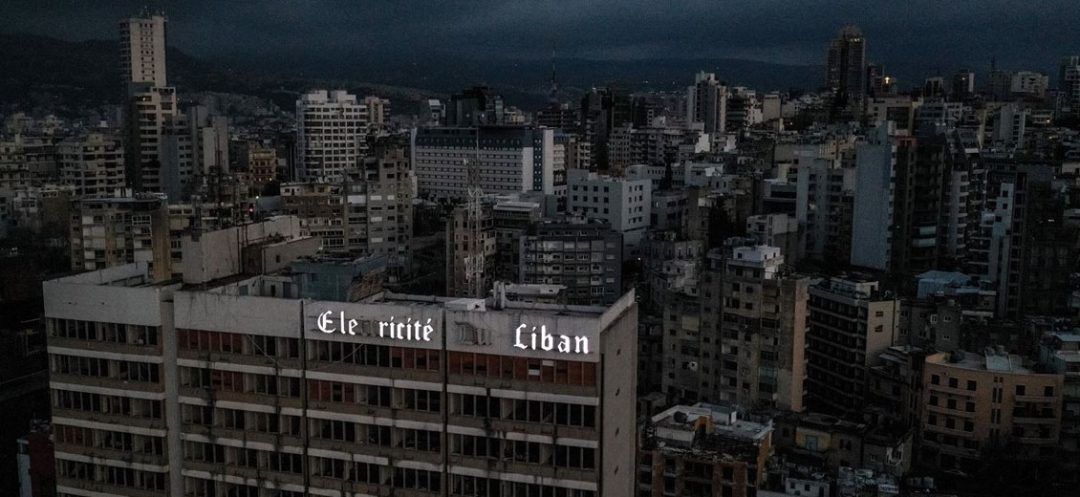
Ten MPs – Ashraf Rifi, Michel Moawad, Fouad Makhzoumi, Ghassan Hasbani, Georges Okais, Adib Abdel Massih, Elias Hankach, Marc Daou, Bilal Houchaymi and Michel Douaihy – presented a petition on Thursday, calling for the formation of a parliamentary commission of inquiry to look into “the transgressions and acts of negligence committed in connection with the electricity file.”
They also asked that the investigating judge be given full powers to conduct the necessary probe.
The MPs presented their petition at a press conference led by MP Adib Abdel Massih.
The document states that “it has been proven over the last twenty years that the resolution of the electricity crisis in Lebanon is not technical or even financial. International and Arab organizations, both governmental and non-governmental, have submitted multiple and diverse offers, to technically and financially resolve the electricity crisis, to successive governments, specifically to successive ministers of Energy. The offers were made by Qatar, Siemens and Aquapower in cooperation with the Kuwait Fund for Development, among others.”
“It is now clear that the problem lies in the absence of any real will on the part of all those who have headed this Ministry to resolve the electricity crisis, despite the promises made,” the text reads.
“This is explained,” according to the MPs, “by an intention to conceal corrupt operations, whether in fuel purchases, energy imports, power plant maintenance or the installation of new plants, as well as to cover up the existence of a black market in electricity that generates billions of dollars through generators.”
The text recalls that in 2002, “a law was promulgated by Parliament concerning the regulatory authority, but it has not been implemented to this day, sometimes due to political wrangling.” In the MPs' opinion, “it has not seen the light of day because of apprehensions linked to the transfer of power from the Ministry to the authority in question.” The Council of Ministers also approved an electricity plan on June 21, 2010, which has yet to be implemented.
“On March 28, 2017, the government approved another plan – the Electricity Sector Rescue Plan for Summer 2017, which provided, in its first clause, for the leasing of additional energy from floating power plants with a production capacity between 800 and 1,000 megawatts. This agreement later turned out to be dubious, costing the Lebanese state several times more than building new plants, and its implementation was more than suspect,” the MPs added.
They also asked that the investigating judge be given full powers to conduct the necessary probe.
The MPs presented their petition at a press conference led by MP Adib Abdel Massih.
The document states that “it has been proven over the last twenty years that the resolution of the electricity crisis in Lebanon is not technical or even financial. International and Arab organizations, both governmental and non-governmental, have submitted multiple and diverse offers, to technically and financially resolve the electricity crisis, to successive governments, specifically to successive ministers of Energy. The offers were made by Qatar, Siemens and Aquapower in cooperation with the Kuwait Fund for Development, among others.”
“It is now clear that the problem lies in the absence of any real will on the part of all those who have headed this Ministry to resolve the electricity crisis, despite the promises made,” the text reads.
“This is explained,” according to the MPs, “by an intention to conceal corrupt operations, whether in fuel purchases, energy imports, power plant maintenance or the installation of new plants, as well as to cover up the existence of a black market in electricity that generates billions of dollars through generators.”
The text recalls that in 2002, “a law was promulgated by Parliament concerning the regulatory authority, but it has not been implemented to this day, sometimes due to political wrangling.” In the MPs' opinion, “it has not seen the light of day because of apprehensions linked to the transfer of power from the Ministry to the authority in question.” The Council of Ministers also approved an electricity plan on June 21, 2010, which has yet to be implemented.
“On March 28, 2017, the government approved another plan – the Electricity Sector Rescue Plan for Summer 2017, which provided, in its first clause, for the leasing of additional energy from floating power plants with a production capacity between 800 and 1,000 megawatts. This agreement later turned out to be dubious, costing the Lebanese state several times more than building new plants, and its implementation was more than suspect,” the MPs added.
Read more



Comments